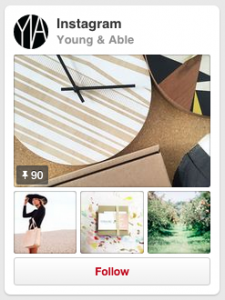— February 27, 2018
Many entrepreneurs choose to concentrate on building their social media followers and seldom give any thought to creating and growing a list. Social media followers are valuable but they don’t grow the one list you actually own. And it leaves your audience susceptible to the whims of Mark Zuckerburg (Facebook), Jack Dorsey (Twitter) and Kevin Systrom (Instagram).
Email, however, is a proven method to reach your audience and cultivate the long-term relationships that translate to cash in your pocket. Email’s ROI is one of the highest across online marketing channels.
“Email averages a return on investment (ROI) of $ 40 for every $ 1 spent, far outstripping banner ads ($ 2) and keyword ads ($ 17),” writes Eric Didier in an article at MarketingProfs.
So what are you waiting for? Here’s how to build your list.
Step One: Make a Plan

Stock photo
Everything goes better if you make a plan well in advance and that applies to everything from road trips to list-building campaigns.
Generic plans never perform as well as specific ones so be as detailed as possible.
If you work with a virtual assistant or team, they will appreciate a well laid out plan too! When you add specific parameters such as, create autoresponder message by XX date, you add built-in milestones and point your plan towards specific goals.
Start by sitting down and brainstorming who your target audience is. Ask yourself these questions:
- Who are your prospective visitors?
- What, above all else, are they looking for, when they visit your site?
- What would help them most quickly – right now?
- What keywords did they use when they located your site?
- Where are they most active? This might be mobile devices, social networks or a membership site.
- What unique skill can you use for them?
- Why should they trust you/your site?
Don’t skim over this step. The more real thought and research you put into the answers, the better you’ll be able to target subscribers – and giving them what they want (and more) is just the starting point of growing your list.
Ways to find out your answers:
- Check your Google Analytics stats – This should show you key stats such as :
- Which pages visitors access most
- Where your traffic is coming from
- Keywords used
- Ask questions – Do this in your social networks, membership sites, and forums. You can also ask existing customers and clients.
- Check out competitor demographics – Use stats sites to view specific categories such as which keywords people search with that send them to your competitor. Here’s an article that gives 4 tools you can use.
- Check competitor sites – See what each one offers as a sign-up incentive. Look for reviews on the product or site. Figure out what they are missing that you can provide.
- Create short polls and surveys – Use Survey Monkey. (And start getting subscribers right now by adding an open text area field whose “question” goes something like this:
“If you want to [find out the results of this survey/be added to our list/receive updates about further surveys] leave your first name and email address in the text box below.”
The more care and time you put into this Research and Planning phase, the better targeted your sign-up incentive and strategy will prove to be – and that means more subscribers – fast.
Step 2: Create a Powerful Sign-up Incentive
Here’s where many people get stuck. They think they have to re-invent the wheel and come up with an amazing product that takes months to complete. Wrong!
All you need is something your target visitor will scramble all over herself/himself to download.
This can be as simple as a tip sheet or template. Some common choices are:
- eBooks
- Reports
- Webinars/Seminars recorded online
- Workbooks
- Video Downloads
- Interviews
- Audio content
- eCourses delivered over several days or weeks
- Checklists and mind maps
- Sample chapters
The most important element is your incentive has to be:
- Timely – Right on top of an industry change, for example – before your competitors have even got their boots on
- Unique – No one is providing it right now
- Useful – Something they really need in order to be successfully:
- Bypass or understand existing but confusing instructions
- Perform a task
- Perform a task quickly
- Perform a task more efficiently and more professionally than their peers
- Understand something complex
- Get past a “block”
- Produce brilliant results
Do your best to come up with a list of six possible incentives – then choose the one that will delight your potential subscribers the most and be the easiest for you to produce – or outsource. Then produce it! (Remember – Keep it SIMPLE!)
Step 3: Choose an autoresponder and create your sign up form.
You need a contact form for sign-up, so your potential subscriber can get your free gift – and be added to your newly-created list. You can create sign-up forms with WordPress plugins and if you’re experienced in web design, write one in HTML. But don’t.
For one thing, creating HTML-based web contact forms can leave the door wide open to hackers and get it blacklisted by Google. For another, that’s like trying to lay a railway line from Boston to Seattle – all by yourself.
Instead, subscribe to one of the top-level Autoresponders, and take advantage of templates, tools, tutorials, support and extra services. In other words, automate your list building!
A good autoresponder allows you to send either broadcast or follow up emails. (Broadcast emails can be sent to all your lists: Follow up emails are normally used to target specific segments or subscribers at specific spots along your Sales Funnels.) It also allows you to segment your list for better, more targeted response.
For example, you are more likely to get a sign-up for a new list if you send it to the exact segment of customers who are at the particular step in their journey that would make them appreciate your sign up offer.

Stock photo
There are many autoresponder services and entrepreneurs are frequently confused about which one they should choose. There is not a quick answer! Because everyone’s needs are different, you have to ask a few questions. My recommendation is to ask your virtual assistant or schedule a consultation with an experienced VA. This post, How to Choose a Mailing List Provider & What to Avoid may also help you.
Step 4: Set up your landing page.
This simple page has one specific job: make the reader want to sign up. I recommend you do not create it yourself, but outsource the task to someone experienced in landing page creation and set up.
This page should fit your reader’s needs. The more urgent their need, the shorter your page copy should be. Consider their learning styles and preferences as well. If you’re talking to highly visual people such as artists or web designers, try a video squeeze page.
Also, pay attention to tone and voice. Keep it formal for analytical, logical potential subscribers and chatty for social-culture-based, informal groups.
How you’re most comfortable promoting is always the best way to go – unless it runs counter to your intended audience’s habits and preferences.
Make a plan for promotion too, so that you cover every possible “place” where potential subscribers – ones who will most appreciate your free gift – can be found.
As you grow your email list with contacts who want to hear from you, you’ll be ready to lead them through your sales funnel and convert them into paying customers. Start today.
Note: This post was originally published in 2014 and has been updated for accuracy and relevance.
Digital & Social Articles on Business 2 Community
(67)
Report Post








